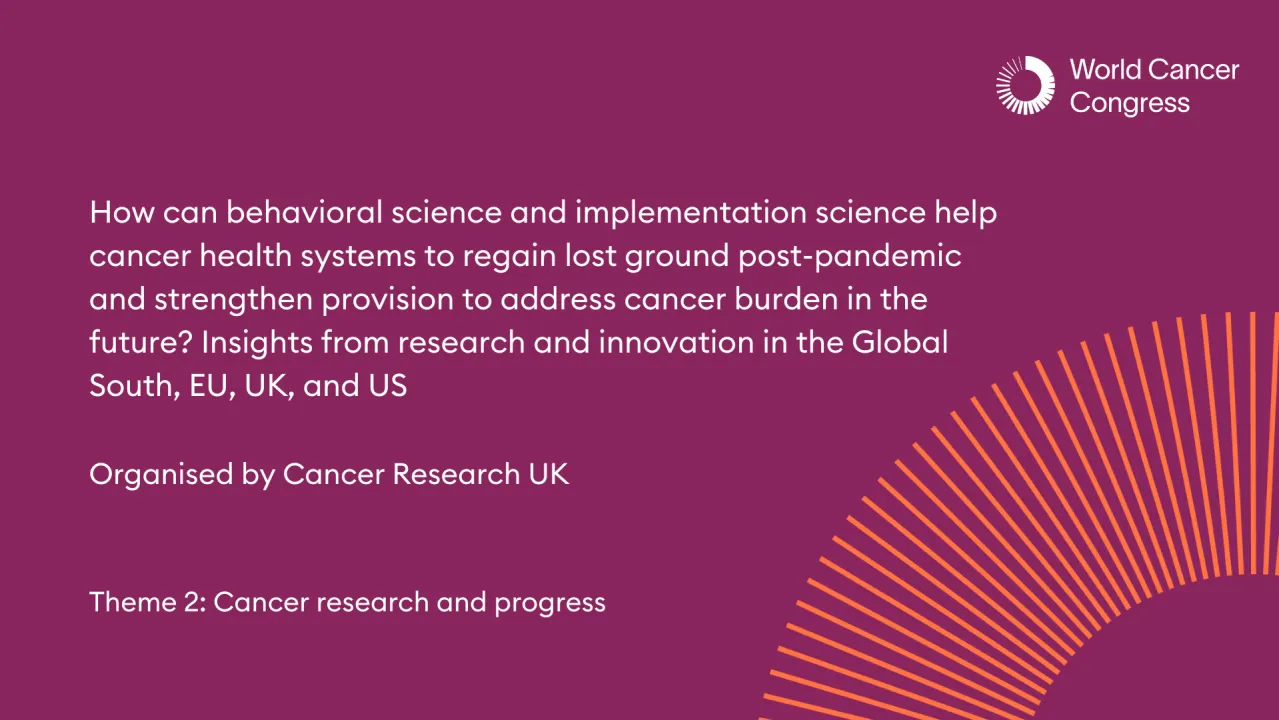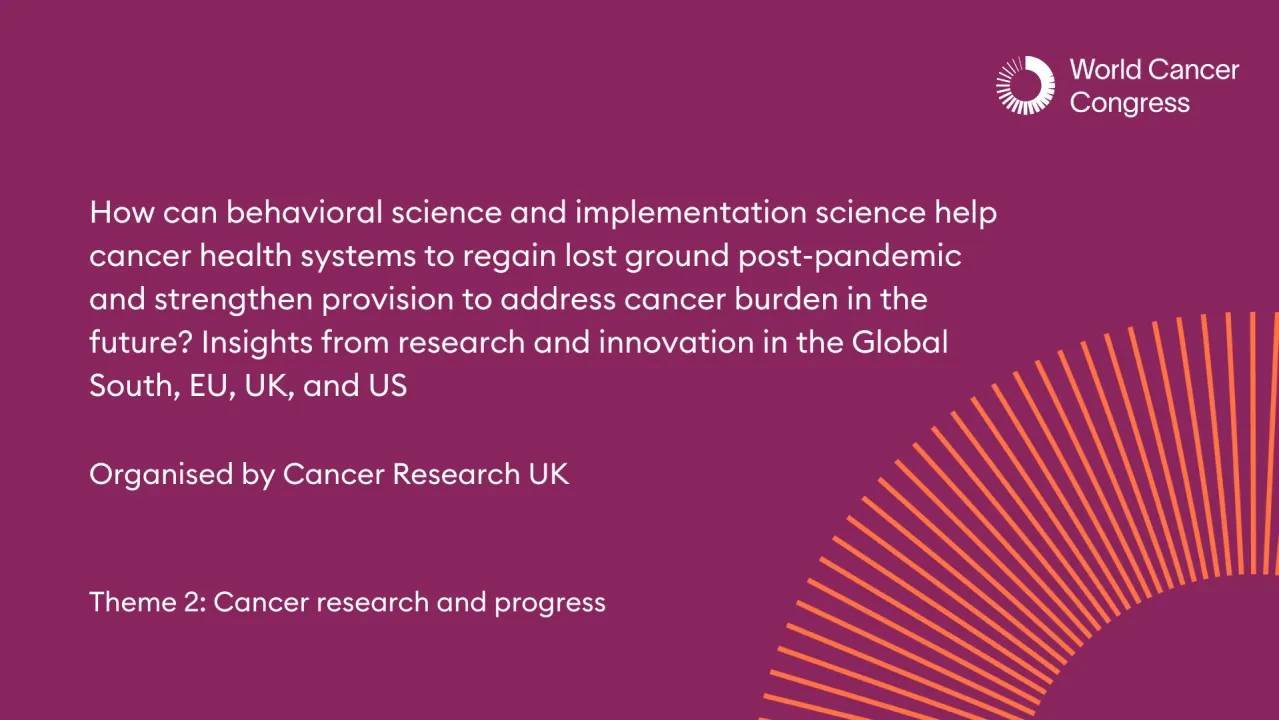

How can behavioral science and implementation science help cancer health systems to regain lost ground post-pandemic and strengthen provision to address cancer burden in the future? Insights from research and innovation in the Global South, EU, UK, and US
Information
Chaired by Kate Hamilton-West, Cancer Research UK Head Office (United Kingdom)
Presentations:1. Using Behavioral Science to understand barriers and enablers of HPV vaccination uptake in the Global South and inform the design, evaluation and scale-up of behavior change interventions. - Kriti Chouhan, Busara (India)
2. Applying behavioural science to understand perceptions and adoption of cancer prevention recommendations amongst European Union citizens. - Ariadna Feliu Josa, International Agency for Research on Cancer (IARC/WHO) (France)
3. Designing and delivering a “Test Evidence Transition” Program to address the ‘implementation gap’ in cancer care and enable the effective and equitable transition of evidence-based innovation into mainstream practice across health systems. - Kate Hamilton-West, Cancer Research UK Head Office (United Kingdom)
4. Advancing the integration of behavioral research in cancer prevention and control: progress, opportunities, and strategies to address implications of the COVID-19 pandemic. - William Klein, National Cancer Institute (United States)

